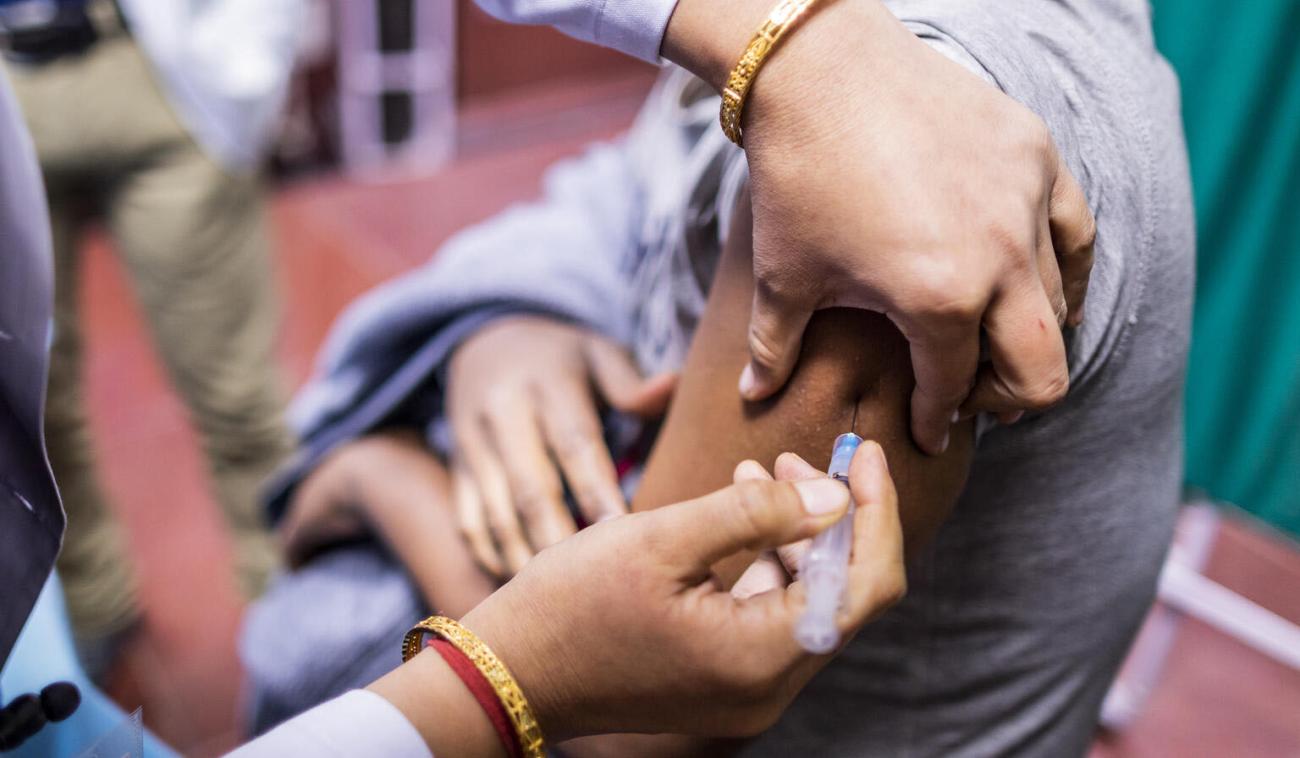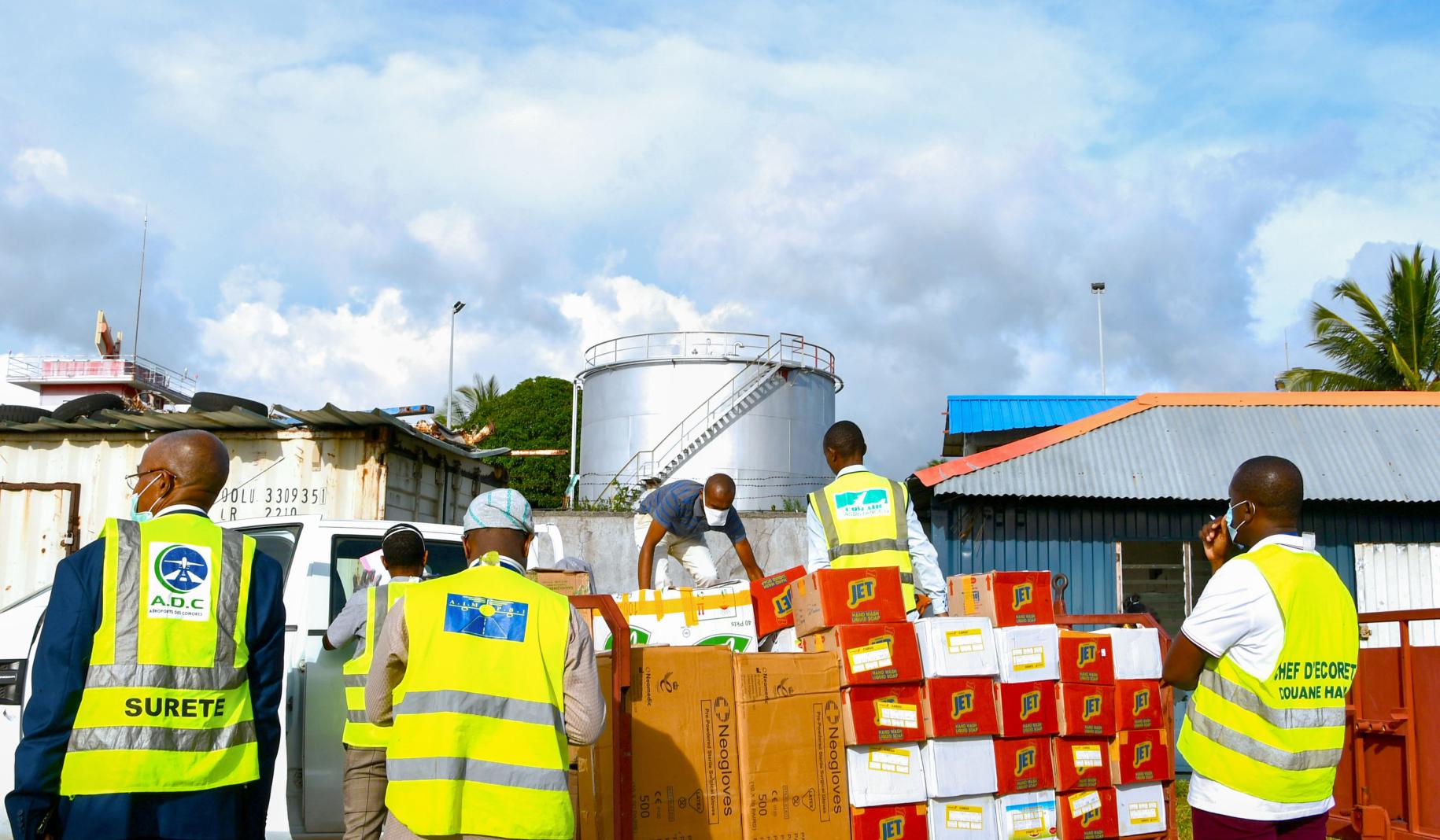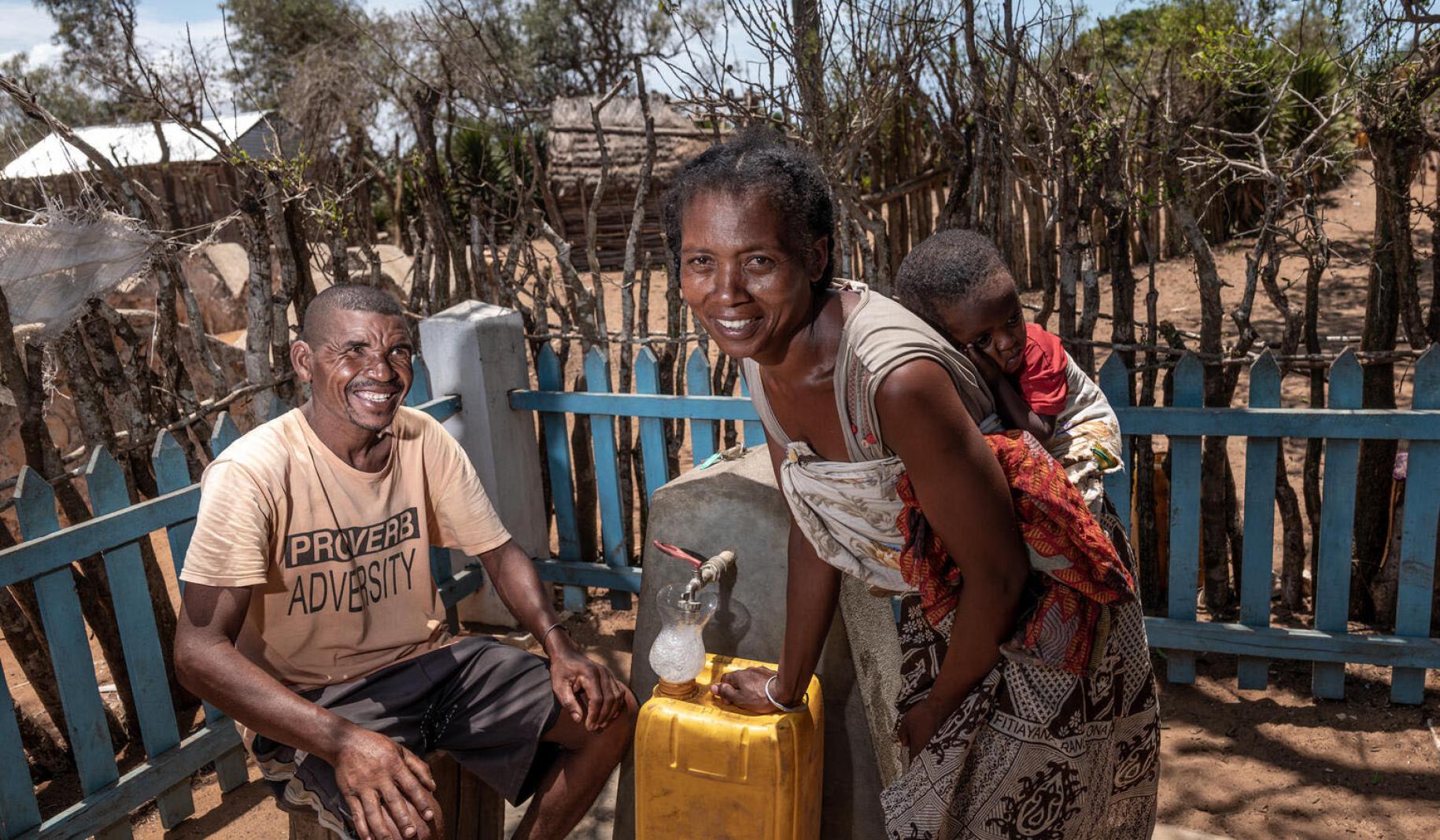Updates from the field #36: UN teams worldwide deliver lifesaving equipment and aid in vaccine roll-outs

The fight against COVID-19 continues and so does the work of our UN country teams worldwide. Teams are delivering medical and personal protective equipment, aiding authorities in national vaccination roll-outs, and helping with overall recovery and response.
Today, we highlight some of those efforts.
Brazil
In Brazil, the UN team has been supporting the public health system in the Northern state of Amazonas, which is currently struggling to cope with the impact of the pandemic.
In the last five days, the UN Refugee Agency (UNHCR), the UN Children’s Fund (UNICEF), the UN Population Fund (UNFPA) and the International Organization for Migration (IOM) have delivered more than 160,000 items to hospitals and emergency rooms. These include 60 cylinders of oxygen to maternity wards, as well as personal protective equipment and hospital beds.
The UN team met virtually with authorities in the Northern region to discuss how to support people’s needs. This includes creating a funding scheme to help authorities immediately respond and recover better in a sustainable way.
The Governor of Amazonas, Wilson Lima, thanked the UN for its support during this emergency and said it is essential to complement existing local and national efforts.
The Governor of Maranhão, Flávio Dino, who chairs the consortium of governors of the Amazon region, thanked the UN for the proposed funding scheme and highlighted that the continental dimensions of the region and the isolation of the states pose severe challenges for the fight against COVID-19 and other integrated sustainable development initiatives.
Comoros
In the Comoros, the UN team, led by Resident Coordinator François Batalingaya, is supporting the authorities’ response to a new COVID-19 outbreak on all fronts.
While the country had been officially COVID-free for nearly 100 days, officials confirm that it took only one imported case, reported last month, for the virus to spread swiftly and widely.
The World Health Organization (WHO) has chartered a plane carrying medical equipment and a team of medical professionals to help Comoros’ smallest island with a population of 36,000, which is at the epicentre of this new wave. WHO has helped nearly 500 COVID patients there, more than half of which are women.

Both WHO and the UN Development Programme (UNDP) have provided more than 3,000 units of personal protective equipment to medical staff and civil protection agents. UNDP helped to install a solar energy system, which has provided electricity for patient care, including maintaining respirators and oxygen concentrators. Also, the World Bank has installed an incinerator that now allows for adequate management of hospital waste, with UNDP providing 30 cubic metres of water per month.
The team has reached thousands of people on how to stop the spread of COVID-19 through awareness and community engagement caravans.
Egypt
In Egypt, the UN team has been supporting national efforts to fight the pandemic.
The country’s massive vaccination plan that started this week—one of the largest in the Arab States—counted on the technical support from UN experts, including WHO and UNICEF, as well as the World Bank. These entities conducted a risks assessment as part of requirements of COVAX Facility, co-convened by GAVI and WHO. Authorities partnered with the UN to also include migrant and refugees in the rollout plan—with priority given to the frontline health workers, as well as to other vulnerable people.
The UN team also focused on coordination, procurement and distribution of vaccines, as well as supply-chain management and healthcare waste management as well as human resource management and training to support national efforts.
The Team is also working with the Government on its communication strategy and community engagement to halt the spread of the virus and curb misinformation to ensure widespread public vaccination.
Madagascar
We move now to Madagascar, where our UN team, led by Resident Coordinator Issa Sanogo, continues supporting national efforts to tackle COVID-19. UNICEF, WHO, UNDP, the World Food Programme (WFP) are especially focusing on protecting children and vulnerable families. One million children under the age of five, living in 49 districts have benefited from efforts to boost primary health with US $1.5 million in support from UN entities.
More than 600,000 children received self-learning booklets as part of the back-to-school programme. Meantime, more than 100,000 classrooms have been disinfected.
On the social protection front, the UN team provided more than 400,000 families with cash to help cushion the economic impact of the pandemic.

Also, the UN delivered 40 cisterns to make clean water available, with a campaign to improve access to drinking water and better hygiene conditions. And that has reached 800,000 people in the most COVID-19 affected areas in five cities.
Myanmar
The UN country team on the ground in Myanmar is following the current situation closely with deep concern, especially considering the need to prevent and respond to the ongoing pandemic.
They are working to ensure that the recent events do not adversely impact the most vulnerable people in Myanmar. The UN team, with WHO and UNICEF, have supported the COVAX application, as well as the national COVID-19 and vaccination plans by assessing the country’s readiness and mapped the cold chain capacity.
Myanmar has so far received 1.5 million doses of vaccine under a programme that started last week. Some 70,000 healthcare workers have been vaccinated so far in 14 states and regions.
The team in the country has repurposed nearly US $100 million to address the impact of the pandemic, including to protect the most vulnerable groups.





































